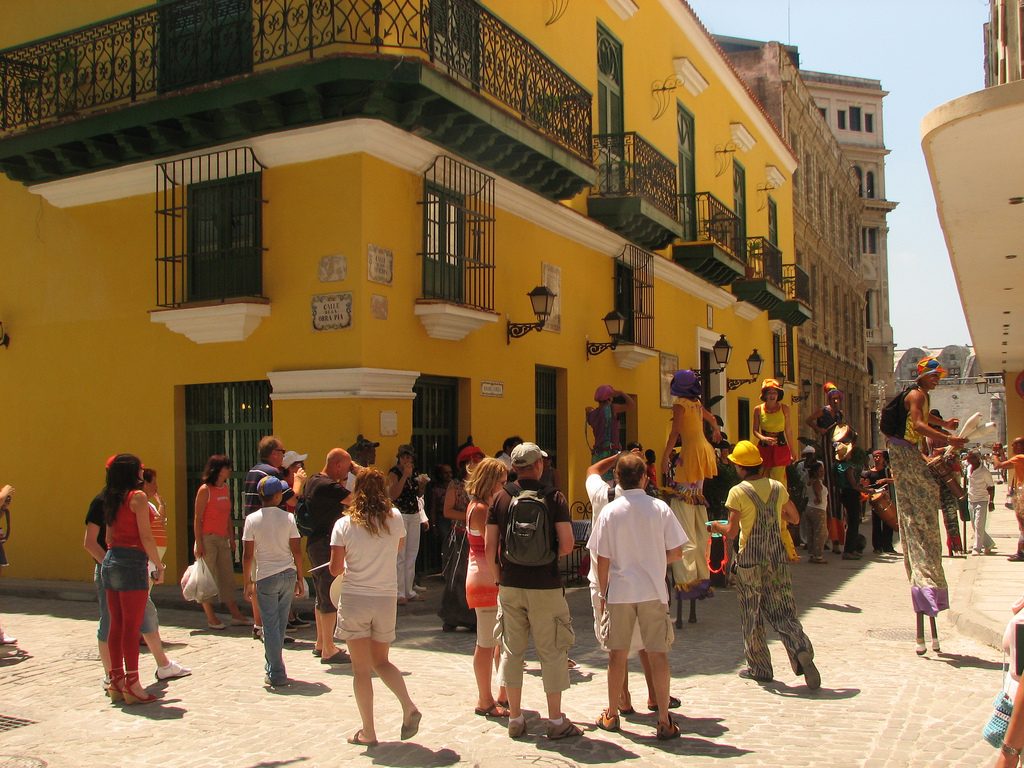
The real reason behind Trump’s Cuba policy
Donald Trump’s new policy on Cuba, in which he maintained most of former president Barack Obama’s openings while restricting two aspects relating to travel and business, offers insight as to what the pro-embargo side considers to be the foundation of their decades-long hostility against the island nation.
The new president could have totally dismantled the normalization process that Obama and Cuban president Raul Castro announced in December 2014. Instead, Trump focused on the most successful aspect of that opening – the easing of travel restrictions. Obama permitted travel under an individual general license, a process that allowed Americans to self-regulate their trip by booking their own airfare, hotel and itineraries without having to apply to the US government for specific permission. The individual travel meant Americans could come to Cuba and see for themselves the reality of the country’s social/economic system, the good, the bad and the indifferent. Americans could make up their own minds what the Revolution was all about, what it had accomplished and what were the shortcomings. Most importantly, those opinions would be formed by direct interaction with the Cuban people.
Trump ended that opportunity, rescinding the individual license and forcing anyone wanting to visit Cuba legally to now go through the costlier travel organizations that are permitted to arrange Cuba trips. He also instructed OFAC to be more diligent in ensuring the tours conform to one of the 12 licensed requirements, meaning more paperwork to prove the travelers will be sticking to a strictly controlled itinerary.
The president’s other reversal was prohibiting American individuals and businesses from participating in financial transactions with entities owned or largely controlled by the Grupo de Administración Empresarial SA (GAESA), a holding company run by the Cuban military. Now U.S. citizens will be barred from spending money in state-run hotels or restaurants connected with GAESA. These measures will undoubtedly put a damper on the ease of travel to Cuba, resulting in fewer Americans coming.
The changes Trump made are significant and will have a direct impact on keeping the embargo firmly in place. The rollbacks were formulated by Cuban-American congressmen Marco Rubio and Mario Diaz-Balart, two of the most strident proponents of ending all engagement with Cuba. The two Republicans were the guiding force behind Trump’s reactionary speech in Miami, where he proclaimed it was all about human rights and keeping money out of the hands of the Cuban government. Those are mere deflections; the ones who will be hurt most are Cubans who have been earning a living through the increase in American travelers. The emerging entrepreneurial collection of taxi drivers, restaurant and private rental home owners will all suffer because of Trump’s hypocritical decision.
The real purpose for these new regulations is to ensure fewer Americans travel to Cuba. Not for economic reasons, but for political.
One of the key elements of anti-Cuban policy has been the travel restrictions and the ability of the few Cuban-American politicians and their supporters to remain the gatekeepers of that strategy. Travel restrictions were put in place in large part so that Americans, prohibited from visiting Cuba, were unable to contest the unrelenting anti-revolutionary propaganda. Few could challenge the supposed expertise of the Cuban-American right wing in Miami, and so the negative opinions about Cuban society were controlled by the revolution’s most vociferous opponents.
That started to change with the easing of travel restrictions. In 2016 close to 170,000 Americans visited the island (not including Cuban-Americans) an increase of 40 percent from the year before. By the halfway point of this year estimates indicate nearly 100,000 visits. Americans have been flocking to Cuba to see for themselves what the revolution is all about. Unfortunately, following Trump’s announcement those numbers are expected to decrease significantly.
In the majority, Americans traveling to Cuba the past two years have returned home with a greater understanding of Cuban society, and a better appreciation of the harm U.S. policy has done to the country – while still recognizing the shortcomings in the Cuban system. Those who are now questioning the rationale for the embargo and travel restrictions represent a dangerous group of people to the anti-Cuban side. The ability to control the negative message about Cuba has weakened as the number of Americans visiting the island has increased.
If even a small percentage of Americans who travel to Cuba engage their Congressmen in support of ending the embargo, that signifies an important new element in changing the status quo. That possibility, combined with the pressure U.S. businesses are already putting on Congress to normalize relations, represents a serious threat to Rubio, Diaz-Balart and the others who have objected to the 2014 openings.
One of the easiest methods to help weaken that threat is to deter Americans from coming to Cuba; to make it more expensive and complicated to travel there. Not to ‘hurt’ the government or ‘help’ the people, but to try and maintain control of the anti-Cuba propaganda so important to the preservation of a restrictive, mean-spirited policy that should have been consigned to the trash bin of history a long time ago.
Donald Trump didn’t alter the normalization process for any of the public reasons he stated. He did in a misguided appeasement to an ever-smaller group of intransigents who, while still exerting influence, are seeing their efforts to maintain their hostile Cuban policy diminish.
For once their anti-Cuba message is no longer heard, once the lies are proven false, the justification for the embargo and travel restrictions against this small island nation sinks under the weight of every American who has the opportunity to see for themselves what Cuba is really all about.


